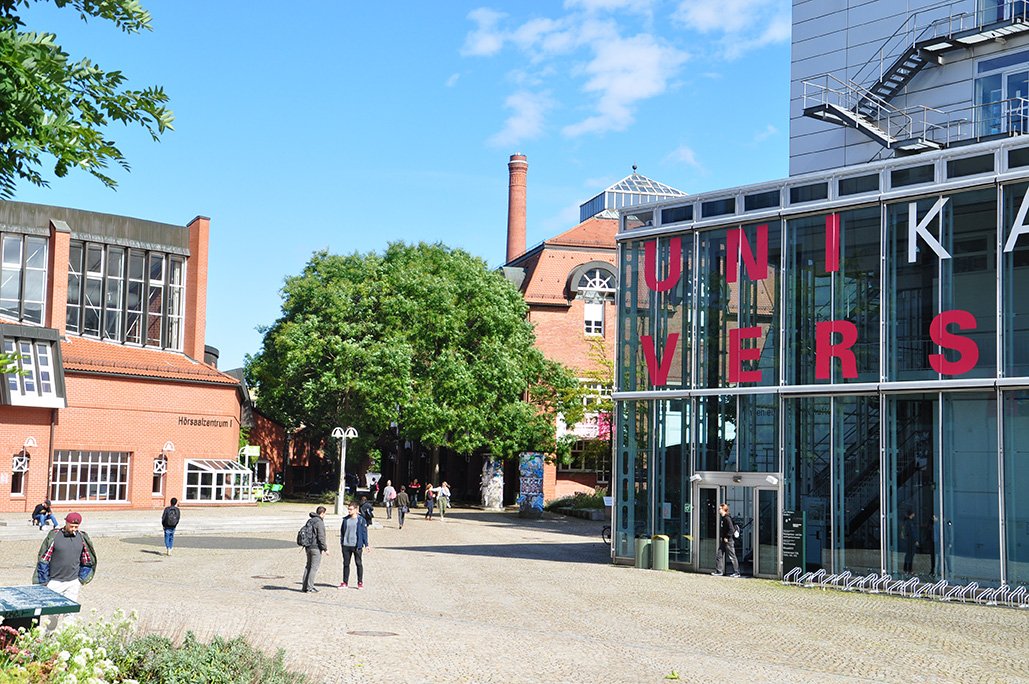This page contains automatically translated content.
Hybrid semester planned - but winter semester also starts largely digitally
 Image: Kassel University
Image: Kassel University"Just a few weeks ago, we were in good spirits that significantly more studying could take place in presence than in the summer semester. Now, realistically, we have to assume that this winter semester will also be largely digital," regretted University President Prof. Dr. Reiner Finkeldey.
Thus, the federal and state governments agree that only renewed strict restrictions will lead to fewer contacts and thus a calming of the contagion. In a circular email to all students and employees, the university provided information about the measures on Friday (Oct. 30):
- In teaching, digital teaching has priority. Classroom teaching will be reduced to an absolute minimum, initially for November . It will only take place where digital teaching is impossible, where it is dependent on special teaching spaces (laboratory, workshop, studio) or where other - narrowly defined - necessities exist, such as in the area of musical or sports practice.
- Classroom exams will continue to take place in consultation with faculty.
- Field trips are suspended for November and will not take place.
- University buildings will again be closed to the general public in November. The Campus Center will remain open, in part so that campus card validation can take place there.
- The LEO Learning Center and libraries will remain open under current arrangements.
- The dining halls will remain open for take-out and on-site consumption. This is in accordance with state requirements.
- New is an expanded requirement to wear mouth-to-nose coverings even during classes.
The university president called on everyone on campus to be considerate: "Students who come to the university for necessary presence exams must be able to do so with a sense of security. Where there is no substitute for personal contact, everyone is urged to abide by the known rules." Finkeldey expressly thanked those who have dedicated a great deal of effort to preparing digital and hybrid courses and organizing corresponding exams, coupled with the hope that these concepts can be used during the course of the semester.
The University of Kassel had still been accepting enrollments until shortly before the start of the lecture period. Therefore, no reliable enrollment figures are available yet. In total, between 24,500 and 25,000 students are expected to be enrolled. This can be predicted from the high number of registrations received in recent months, which are at the same or even slightly higher level than last year.
"For us, this is also an initial confirmation that the many teaching staff at the University of Kassel have done many things right in this special summer semester," commented Prof. Dr. René Matzdorf, Vice President for Studies and Teaching, referring to the feedback. Whether factors such as the relatively poor broadband coverage in northern Hesse or the low number of high school graduates in nearby Lower Saxony will have an impact on the number of new enrollments in this Corona year cannot be reliably said at the moment, he added. Meaningful figures will not be available this year until mid/late November.